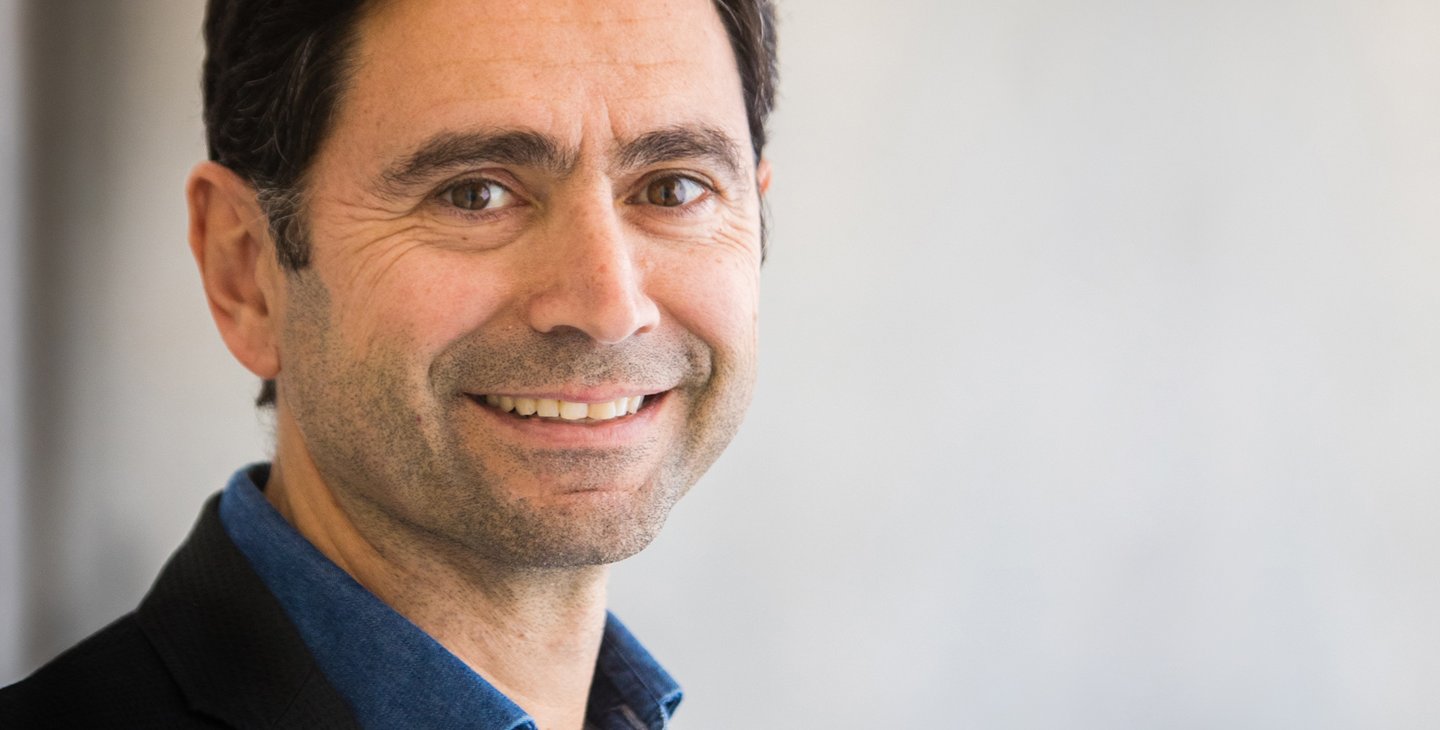Patapoutian shares the prize with David Julius for their "discoveries of receptors for temperature and touch."
Caltech alumnus Ardem Patapoutian (PhD '96), Presidential Endowed Chair in Neurobiology and Professor at Scripps Research in La Jolla, California and a Howard Hughes Medical Institute Investigator, has been awarded the 2021 Nobel Prize in Physiology or Medicine, along with David Julius of UC San Francisco. The two were honored for their "discoveries of receptors for temperature and touch," according to the award citation.
Touch is a major sense through which we perceive the world: we are comforted by a gentle hug and our hands are pleasantly warmed by the heat and heft of a cup of coffee, but we pull away in pain from the stinging prick of a thorn or a hot flame. These perceptions are shaped by sensory information related to both temperature—hot or cold—and pressure.
Patapoutian and Julius were recognized for their major contributions that helped to uncover how these processes work in the body and to elucidate how temperature and pressure stimuli from the external world are converted into electrical impulses in our nervous systems. Their work is now leading to new treatments for chronic pain, including the development of non-opioid painkillers.
For his half of the prize, Julius was lauded for research that made use of compounds such as capsaicin (the compound responsible for spiciness in chili peppers) and menthol to identify temperature-sensitive sensors in cells.
Patapoutian was honored for his discovery of the cellular sensors in the skin and internal organs that respond to mechanical stimuli such as touch. He and his collaborators first cultured a cell line that gave off a measurable electrical signal when individual cells were poked with a tiny pipette. The team systematically knocked out individual genes in these pressure-sensitive cells, which allowed them to identify the genes that encode for the receptor or receptors that respond to pressure.
Patapoutian and his team identified two genes that each encode for previously uncharacterized ion channels that open up in response to mechanical pressure; ion channels are a kind of tunnel connecting the inside and outside of a cell. The two channels, which were named Piezo1 and Piezo2 after the Greek word for pressure (píesi), have since been shown to sense body position and motion (known as proprioception), and regulate important physiological processes such as blood pressure, respiration, and urinary bladder control.
As a biology graduate student at Caltech from 1990 to 1996, Patapoutian worked in the laboratory of Barbara Wold (PhD '78), Bren Professor of Molecular Biology. In the Wold lab, Patapoutian studied how individual genes specify cell-type identity, specifically the ones that make muscle.
"This is a joy to see," says Wold, who also serves as the Allen V. C. Davis and Lenabelle Davis Leadership Chair and director of the Richard N. Merkin Institute for Translational Research. "Ardem was wonderful to work with from the day he arrived at Caltech. He came with a great love of biology, zest for discovery, and capacity for fine experimental design. And he was always willing to go an extra mile when it required pure work. The project that led him and his students to the Piezos showed all of that. It was a bold scientific risk, hitched to a fine design and tons of work, ultimately achieving beautiful biological insights."
Patapoutian was born in 1967 in Beirut, Lebanon. He received his BS in molecular, cellular, and development biology from UCLA. After his PhD research at Caltech, Patapoutian was a postdoctoral fellow at UC San Francisco from 1996 to 2000, and then joined the faculty of Scripps Research and the staff of the Genomics Institute of the Novartis Research Foundation.
When asked about the secret of his success in his Nobel interview, Patapoutian noted the importance of nurturing surroundings: "I think it's the environment, the people around you, and just to focus on big questions that can be answered," he said. "In science, many times we focus on the big questions but you have to ask it at the right place and the right time where the tools are present to answer those questions."
In 2020, Patapoutian and Julius shared the Kavli Award for Neuroscience. He is an elected member of the American Academy of Arts and Sciences, the National Academy of Sciences, and the American Association for the Advancement of Science.
To date, 45 Caltech faculty, alumni, and former postdoctoral scholars have won a total of 46 Nobel Prizes.
MEDIA CONTACTS
Caltech Office of Strategic Communications
- Deborah Williams-Hedges, [email protected], 626-840-1565
- Kathy Svitil, [email protected], 626-676-7628

